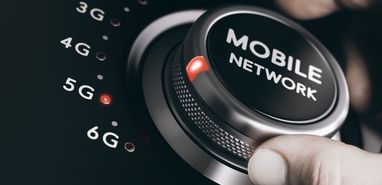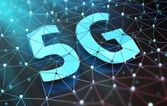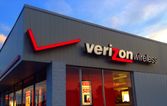
While most of us are still trying to get our heads around the idea of 5G signal and when we might actually get it, Verizon shocked the world by launching a 5G home internet service.
The problem is, with most experts saying that 5G was something we would all have to wait well into 2019 for, many of us are sceptical of Verizon’s 5G claims. Is this really a 5G internet service? Well the answer is complicated, as it’s both 5G and not 5G at the same time, which makes it pretty confusing.
The new home 5G service that Verizon is offering its customers uses a number of the technologies associated with 5G, just not all them. So, it isn’t exactly what you would deem a pure 5G service.
The main difference in the technology used in this home internet service is the switch to the use of millimetre radio waves, which is what is deemed to be the backbone of what we call 5G connections as they work over a much smaller distance and are far faster. This means that wireless internet will work at greater speeds and be far more efficient. However, this is where Verizon’s home internet service and its likeness to what will become the widely accepted 5G standard end.
One of the most important missing aspects from the Verizon 5G is that devices are all meant to work together over 5G, speaking the same language. This is not happening in Verizon’s version of 5G. Indeed, the company have basically created their own version of 5G, in what can only be described as a cheat to be the first company on the market to offer 5G.
This was perfectly summed up in a damning tweet by T-Mobile CEO John Legere where he said: “It doesn’t use global industry standards or cover whole blocks and will never scale… but hey, it is first, right?!”. The CEO has also taken to referring to Verizon’s 5G service with an asterisk beside it and mocking the FAQ section on the company’s website to show how little he thinks of the 5G internet they are offering.
Of course, as a competitor to Verizon, Legere is hardly going to praise the company. Yet, when you browse the FAQ section in question and see the vague idea of internet speeds and the idea that you have to live on a certain floor or section of an apartment block for the 5G internet to work is a worrying prospect. It does really feel like Verizon have raced to get a substandard product out just to be first.
Will Verizon customers get a true 5G connection eventually?
It’s important to note here, though, that the 5G service that Verizon have launched is still ultimately in a test phase. Which is why the service is only being offered in Los Angeles, Ca; Sacramento, Ca; Houston, TX; and Indianapolis, IN. So, it does make sense that the company will be unsure of speeds and connectivity until they can use customers basically as guinea pigs.
The bigger problem, and one also mentioned by Legere, is how Verizon will scale the 5G they are currently offering – dubbed 5G TF – to the 5G NR hardware that will be the industry standard for 5G when it’s released in the future?
Well, it appears that the company plans to physically replace all their hardware when the time comes. They also, thankfully, claim that they will not charge their customers for this. However, there is also no set timeline for this, meaning that when other companies eventually release their own 5G NR, Verizon customers may have to wait a substantial amount of time for their 5G style internet to be updated. Or, again, Verizon may be the first company to also get the 5G NR internet service out too. There is no true answer here.
Verizon will force competitors to hurry 5G alone
Unlike its competitors, Verizon will be able to both test their 5G TF hardware with actual customers at the same time as they work on the NR hardware. This will give them incredible insight into what is working and isn’t working with the service.
Ultimately, it will be a good thing for customers. Not only can you sign up to get a quicker internet service now – even if it’s not a pure 5G service – the fact that Verizon are trying to monopolise the market will force its competitors to work far more quickly to get 5G on the market than they perhaps were. Otherwise, they might find that all their potential customers have signed up with competitors.
The main problem is that Verizon are claiming to be selling 5G internet when in reality, the service that they are selling is not 5G. True, it’s faster and better than the internet that is currently available, but this 5G style internet does not meet the industry standards of what 5G will be, and many customers may not realise that the service they are buying into cannot be upgraded simply. So, before you sign up, research the service first to be sure you know exactly what you’re getting.






![SD-WAN for Business [Infographic]](https://ik.imagekit.io/techloot/wp-content/uploads/2018/07/tr:n-tl_image_grid_2_mb/sd-wan-featured.jpg)
By Steph Freeman
Updated on 26th March 2019